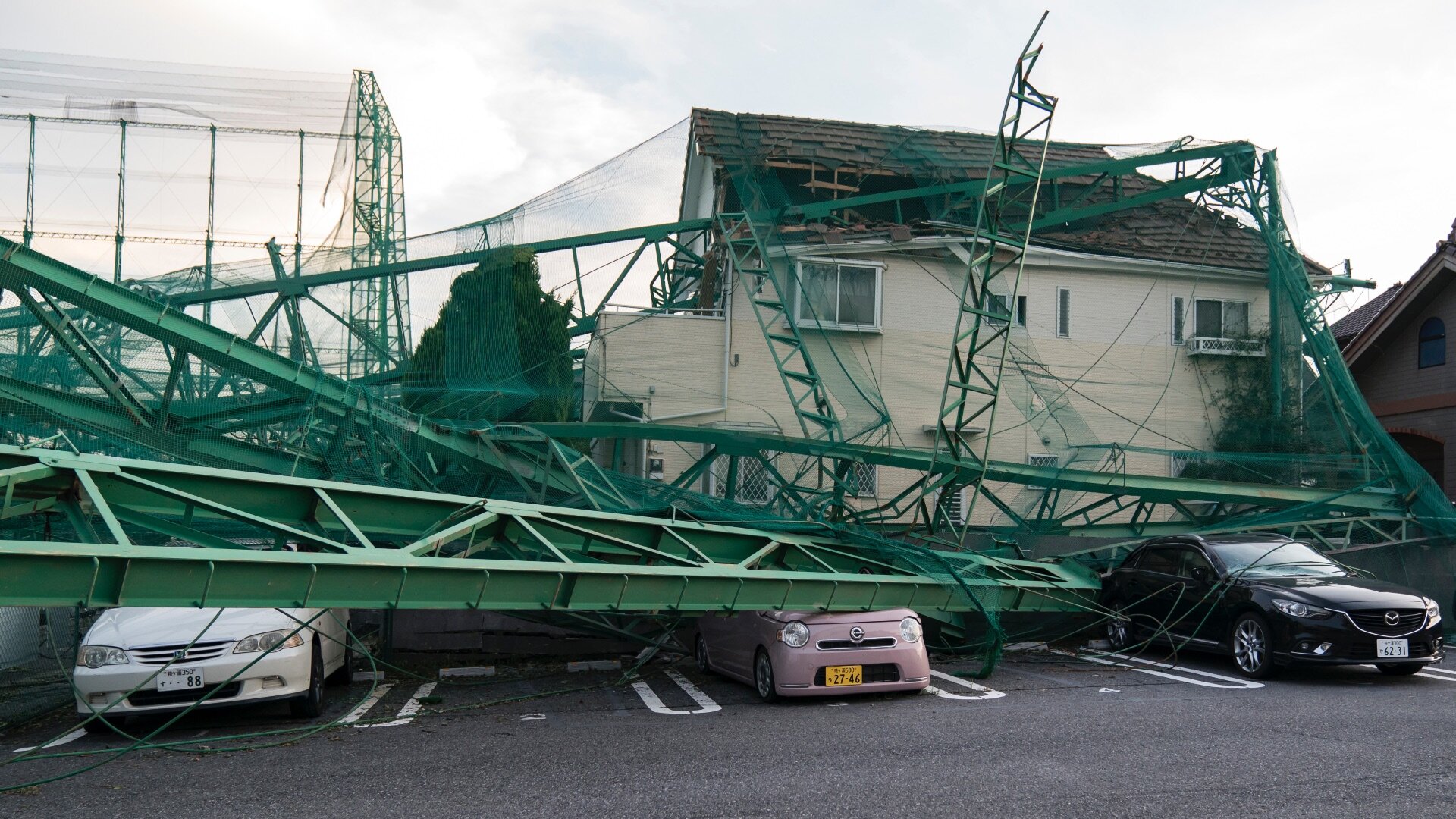Safety first but World Rugby's lack of a contingency plan must be questioned - Andy Goode

People’s safety absolutely has to be paramount but it’s only natural to question World Rugby’s contingency plans when simply awarding two points each is the end result.
It’s one thing when it’s England vs France and both teams have already qualified but Italy have had their opportunity of qualifying for the knockout stages for the first time in their history taken away from them.
Of course, they were extremely unlikely to beat the All Blacks and make it to a quarter-final but that’s not the point. It’s a sport and you can’t just write off their chances. There could have been a red card in the opening few minutes and they might have played the game of their lives.
Sergio Parisse’s reaction was punchy and I don’t agree that it would be different if it was New Zealand needing to win, but you can understand his frustration and you have to feel for the Italians on a personal level as well.
It would probably have been Parisse’s final game for the Azzurri, certainly his last at a World Cup, and Alessandro Zanni and Leonardo Ghiraldini are in a similar boat.
(Continue reading below…)
Ghiraldini was due to make a 20-minute cameo appearance against the All Blacks to cap off a 15-year international career after months of battling back from an awful injury, so it’s no wonder tears were shed when that was taken away from him.
It wasn’t possible for anyone to predict the sheer scale of Typhoon Hagibis but organisers did know these storms were probable at this time of year, so it’s just a question of whether the contingency plans are appropriate.
Clearly, World Rugby haven’t taken any of these decisions lightly and they have far more information at their disposal than the rest of us looking on from afar. They are also correct that all teams were aware of the rules prior to the tournament but just cancelling games isn’t a great look for the tournament.
'Never once in its 32-year history has a fixture been cancelled and it has opened a Pandora’s Box of issues that may yet come back to bite the organisers.'
– RugbyPass columnist @OwainJTJones on the unprecedented turn of events in Japan #rwc2019 https://t.co/CVDyhNRbIF
— RugbyPass (@RugbyPass) October 10, 2019
It may well be that the amount of devastation and disruption that Typhoon Hagibis leaves in its wake means none of these games could realistically be played even a couple of days later anyway but you can’t help feeling that should be a possibility.
It’s a very difficult situation for everyone concerned but postponing the games in the first instance, especially New Zealand vs Italy and Japan vs Scotland where qualification is up for grabs, rather than cancelling them (a final decision is, of course, still awaited on the Japan-Scotland game) would have been preferable.
It’s also particularly difficult to understand why there are different contingency plans in place for the knockout stages compared to pool games. That just doesn’t seem right when some of these are effectively knockout matches.
The latest in the war of words between the Scottish Rugby Union and World Rugby regarding the typhoon-threatened Scotland-Japan World Cup match https://t.co/OfEjivvRan
— RugbyPass (@RugbyPass) October 11, 2019
Italians might not be too happy that extra time is being given before making a decision on Scotland vs Japan compared to their game against New Zealand, but everyone is hoping it can go ahead. It looks like there may even be legal implications from a Scotland perspective if it doesn’t.
You can see their point that there should be a bit of flexibility in the schedule in extreme examples such as these, even though there are huge logistical difficulties associated with moving either the date or location of a game.
Scotland may yet not be affected but it’s already too late for Italy. They have had their chance of qualification, however slim it might have been, taken away from them and that leaves a bitter taste in the mouth.
WATCH: Scotland’s Gregor Townsend on his belief that Sunday’s World Cup match with Japan will still be played
































